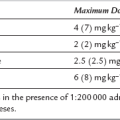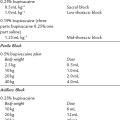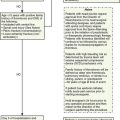Choosing the right path to recovery from addiction is a deeply personal decision. When it comes to treatment options, one of the biggest questions many face is whether to pursue outpatient addiction treatment or inpatient rehab. Both have their strengths, and understanding the differences can empower you or your loved one to choose the best fit for your unique journey toward healing.
At its core, addiction treatment is about transformation. It’s about moving from a life controlled by substance use to one guided by clarity, strength, and hope. Whether you take that step in a residential setting or through outpatient programs, what matters most is finding a path that fits your life, your needs, and your goals.
What is Inpatient Rehab?
Inpatient rehab, sometimes called residential treatment, is a more intensive and immersive approach. Imagine stepping into a safe, structured environment where your sole focus is recovery. You live at the facility for a period, usually ranging from 30 days to several months, surrounded by medical professionals, therapists, and peers all walking the same path.
This 24/7 care model allows for constant monitoring of physical and emotional health. It’s particularly beneficial for those with severe addictions, co-occurring mental health disorders, or a history of relapse. The controlled environment eliminates access to substances, offering a “clean slate” where you can focus fully on healing without distractions or triggers.
What is Outpatient Addiction Treatment?
On the flip side, outpatient addiction treatment offers flexibility and the ability to maintain daily life responsibilities while receiving care. Instead of living at the treatment center, you attend scheduled therapy sessions, group meetings, or medical appointments while returning home each day.
Outpatient programs can vary greatly, from a few hours per week in intensive outpatient programs (IOP) to less frequent sessions focused on aftercare and relapse prevention. This approach is often preferred by those with mild to moderate addiction, strong support networks at home, or obligations such as work and family.
The Personal Choice: Which One Feels Right?
Choosing between inpatient and outpatient rehab isn’t just about clinical factors, it’s deeply personal. Ask yourself or your loved one:
- How severe is the addiction?
- Do you have a stable home environment supportive of recovery?
- What responsibilities do you need to maintain during treatment?
- Have you been through rehab before? What worked or didn’t?
- How do you respond to structure and accountability?
For some, inpatient rehab’s immersive nature is exactly what they need, a chance to disconnect from old patterns and build new foundations. For others, outpatient treatment offers the freedom to heal without pausing life’s commitments, making it a more sustainable and empowering option.
The Strengths of Outpatient Addiction Treatment
Outpatient treatment is more than just convenience; it’s a powerful approach that embraces the realities of modern life. Here’s why it can be a great fit:
- Flexibility: Attend therapy sessions around work, school, or family obligations. You remain rooted in your everyday world while building new coping skills.
- Community Integration: Outpatient programs help you practice sobriety in real-life settings, strengthening your ability to handle triggers and stressors.
- Cost-Effectiveness: Generally, outpatient care costs less than inpatient programs, making treatment accessible for more people.
- Step-Down or Step-Up Care: Many individuals start with inpatient rehab and transition to outpatient treatment for continued support. Alternatively, outpatient programs can serve as an entry point for those not ready for residential care.
When Inpatient Rehab is the Right Call
Inpatient care shines when the addiction is complex or the risk of withdrawal is high. It offers:
- Constant medical supervision: Essential for managing severe withdrawal symptoms safely.
- Structured routines: Eliminating distractions and negative influences helps focus energy on healing.
- Intensive therapy: Daily group and individual sessions provide deep, consistent support.
- Peer connection: Living with others in recovery fosters community and accountability.
A Personal Story: Navigating the Decision
Consider Sarah’s story. After years of struggling with alcohol, she decided to seek help. Her job and kids meant she couldn’t leave home for long, so she chose an outpatient addiction treatment program. With therapy sessions twice a week and a strong family support system, Sarah slowly rebuilt her life, learning to cope with triggers and managing stress without substances.
Meanwhile, her brother James faced a different reality. His opioid addiction had escalated, and prior attempts at outpatient care ended in relapse. He needed the intensive structure and medical care of inpatient rehab. After 60 days in residential treatment, he transitioned to outpatient support to maintain his recovery while reintegrating into his community.
Both found success by choosing the treatment model that met their individual needs.
Combining Both for Lasting Success
Many recovery journeys benefit from a hybrid approach: starting inpatient to stabilize and detox, then moving to outpatient care for ongoing therapy and relapse prevention. This continuity supports long-term healing, helping individuals navigate life’s ups and downs with professional guidance.
Your Recovery, Your Path
There’s no one-size-fits-all answer when it comes to outpatient vs. inpatient rehab. What matters most is that you take that first step toward recovery with confidence and clarity.
If you’re exploring options, remember: outpatient addiction treatment offers a viable, flexible path that fits real lives and real challenges, without sacrificing quality care. Whether inpatient or outpatient, treatment is about reclaiming your story and building a future free from addiction.





